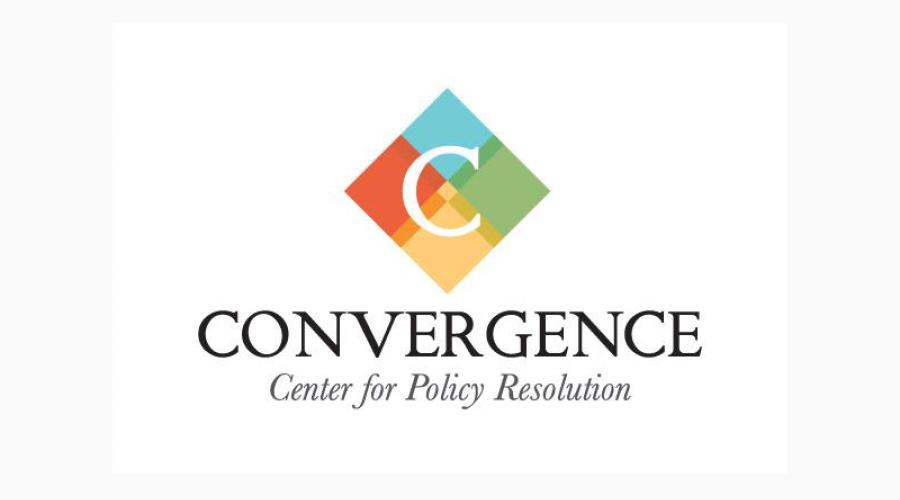
Dialogue Leading to Action
“You don’t desist from trying just because things are tough,” says Robert Fersh ’72, president and founder of Convergence Center for Policy Resolution, a non-profit organization promoting consensus solutions to domestic and international issues.
“There are problems out there that need to be solved, and our theory of change is that the broader the diversity of the groups you can get to a common ground, the better chance you have to create the unlikely alliances that will allow you to produce change.”
Formed in 2009, Convergence focuses on solutions by convening people and groups with diverse views to identify specific actions that will make a lasting difference – getting there through structured, facilitated dialogue and long-term relationship building, he said.
“When I came to the ILR School in 1968, I wanted to be a mediator,” Fersh said. “After a long career in advocacy and working on Capitol Hill, Convergence has provided an opportunity for me to return to, if you will, the role of mediator, using my skills in collaborative problem solving and stakeholder consensus building.”
According to Fersh, the Convergence model is based on ILR’s founding mission of bringing together union and management by finding common ground. Convergence applies the same approach to a variety of issues.
Convergence board member David Lipsky, ILR’s Anne Evans Estabrook Professor of Dispute Resolution, said, “The founders of ILR believed that bringing people together to deliberate, discuss, confer and collaborate would be an effective way to resolve the conflicts that existed in labor relations in the 1930s and 1940s.”
“As time went on, that mission expanded and spread to the non-union workforce. Increasingly, non-union employers are using techniques in facilitation, collaboration, consultation and the like to resolve disputes within a broader national narrative, not just a union workforce,” Lipsky said.
The Einhorn Family Charitable Trust, led by 1991 Cornell graduates David Einhorn and Cheryl Strauss Einhorn, provides support for the organization’s work, which currently includes six main projects:
- Economic Mobility and Poverty
- Federal Budget Reform
- K-12 Education
- Long-Term Care
- Nutrition and Wellness
- U.S.-Pakistan Relations
After three years of meeting, the education project participants developed a national vision for transforming education, Fersh said. The Convergence vision statement is supported by teachers, teacher unions, charter school leaders, district administrators, businesses, foundations and others.
Randi Weingarten ’80, president of the American Federation of Teachers, brought her organization to the table and signed the vision statement, Fersh said.
The project on long-term care developed a national framework for funding long-term services for the elderly and people with disabilities. Convergence recommendations helped inform a recent Congressional hearing, he said.
Convergence Board Chair Rich Korn ’71, Ph.D. ’79 says the “mantra of Convergence is ‘dialogue leading to action.’”
“I think that’s a direct link back to ILR, which is not about conversation for conversation’s sake. Maybe it’s because of the time we were here in the late 1960s and early 1970s, which was an unusual time of significant campus unrest, said Korn, founder of Korn Consulting Group.
Lipsky joined the Cornell faculty in 1969. Korn and Fersh were among his first students; both took his collective bargaining course.
During Lipsky’s first year on the faculty, members of the Afro-American Society occupied Cornell’s Willard Straight Hall to protest race-related issues at Cornell.
It was an incredible period that mobilized and involved the university community, Lipsky said, Along with unrest on campus, issues dividing the nation included the Vietnam War, civil rights and women’s rights.
Lipsky says that the search for common ground starts with the planting of a seed, such as bringing stakeholders who are usually adversaries to a friendly forum to meet and discuss issues.
“You find out that those who have opposing views from your own are not the devil, and indeed, can turn out to be, in many cases, a friend or someone you like to associate with – that happens through Convergence all the time,” Lipsky said.
Fersh, Korn and Lipsky taught, for the second time, a one-credit course this semester for Cornell undergraduate and graduate students, introducing them to the theory of collaborative and interest-based conflict resolution.
During initial sessions, students heard from Convergence directors and facilitators describing how they use these techniques to address public policy issues.
In later classes, students chose an issue of national importance and framed a national conversation designed to bring diverse, high-level stakeholders to the table.
Korn said, “The class attracts students from across the university who are interested in applying these techniques to their fields. We want to imbed an appreciation of the value and usefulness of collaborative problem solving to address big issues among multiple stakeholders.”
“Wherever these students go, hopefully a seed has been planted about how to move things forward,” Korn said.
Fersh said, “Someday, we may get to a point where people can get past stereotypes and really listen to each other. They will no longer view people who disagree as one-dimensional cardboard cutouts who can easily be dismissed.”
“If we can develop greater understanding, we’ll be able to move towards a more civil, functional society.”


